
Wine Culture Magazine
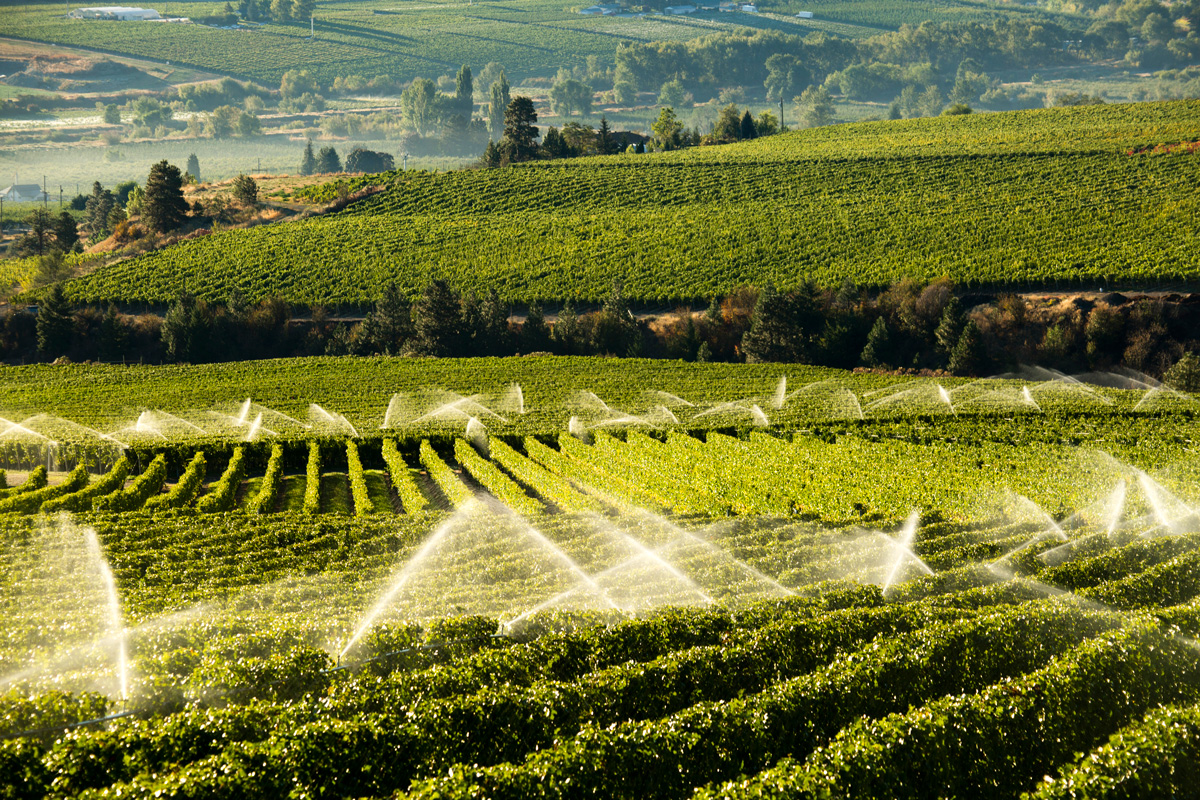
Overhead irrigation systems like this one in the Okanagan Valley are gradually being replaced by less wasteful drip irrigation. Getty Images photo
Irrigation may not be the sexiest topic, but it is an important one. The climate is changing around the world, plants need water, and water is becoming scarce. Grape growers must start thinking seriously about their water use and ways to use less of the precious resource.
Irrigation has always been an interesting topic in wine—and a controversial one, too, even here in British Columbia.
In many parts of Europe, it is illegal to irrigate grape vines and the practice is viewed as a distortion of terroir. It’s seen as artificially manipulating the natural process of ripening grapes.
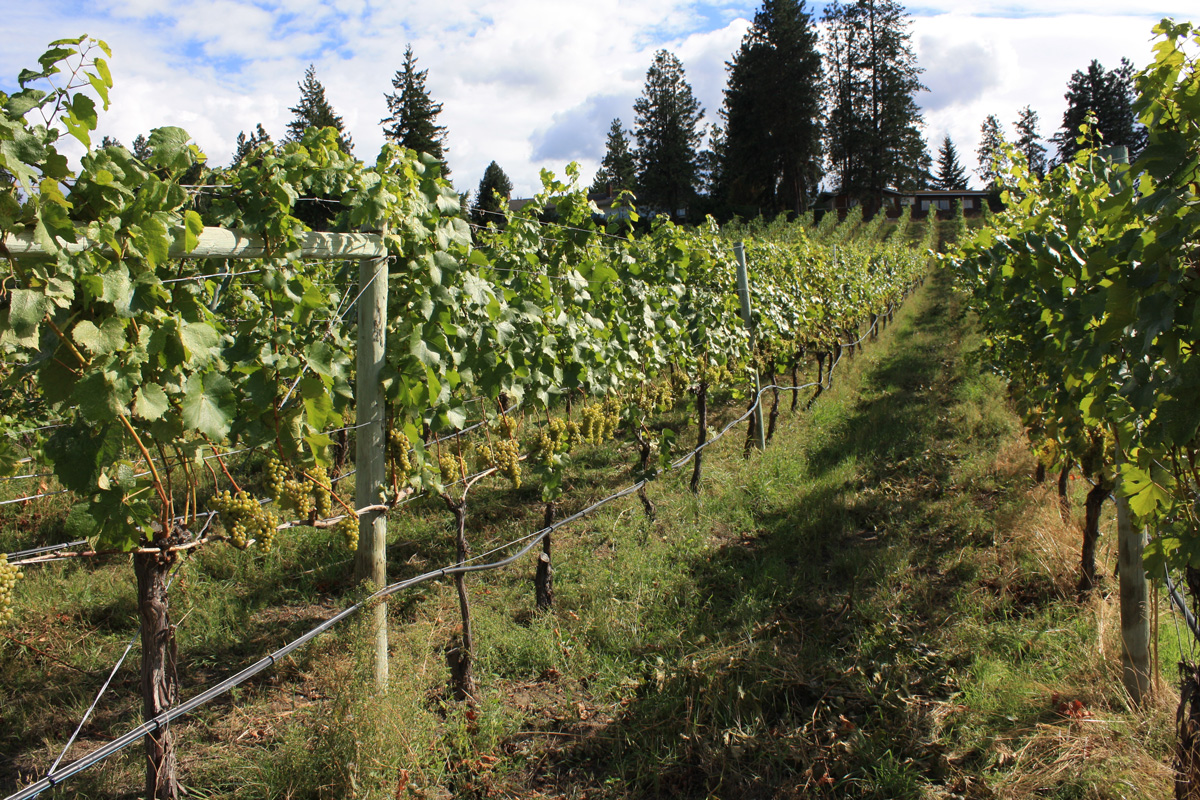
Drip irrigation is one of the many sustainable practices adopted by Summerhill Pyramid Winery in Kelowna. Photo courtesy of Summerhill Pyramid Winery
In most of the New World, though, the need to irrigate has traditionally been seen as an advantage. Planting grapes where rainfall is low has allowed for more consistent wine from vintage to vintage, with sunny skies making for fruity wines appreciated by consumers around the world. But that only works so long as there is a water source to irrigate from.
Having a hand on the faucet of nature has allowed grape growers to either open the tap and push yields to higher levels and extract more wine per acre, or, with close monitoring of drip irrigation, to allow just enough water for a vine to produce its most intense expression of fruit. The vines can get exactly what they need at the exact right time.
Meanwhile, in parts of the Old World where irrigation isn’t allowed, farmers are relying on the whims of Mother Nature, and with climate change she is getting a little extreme.
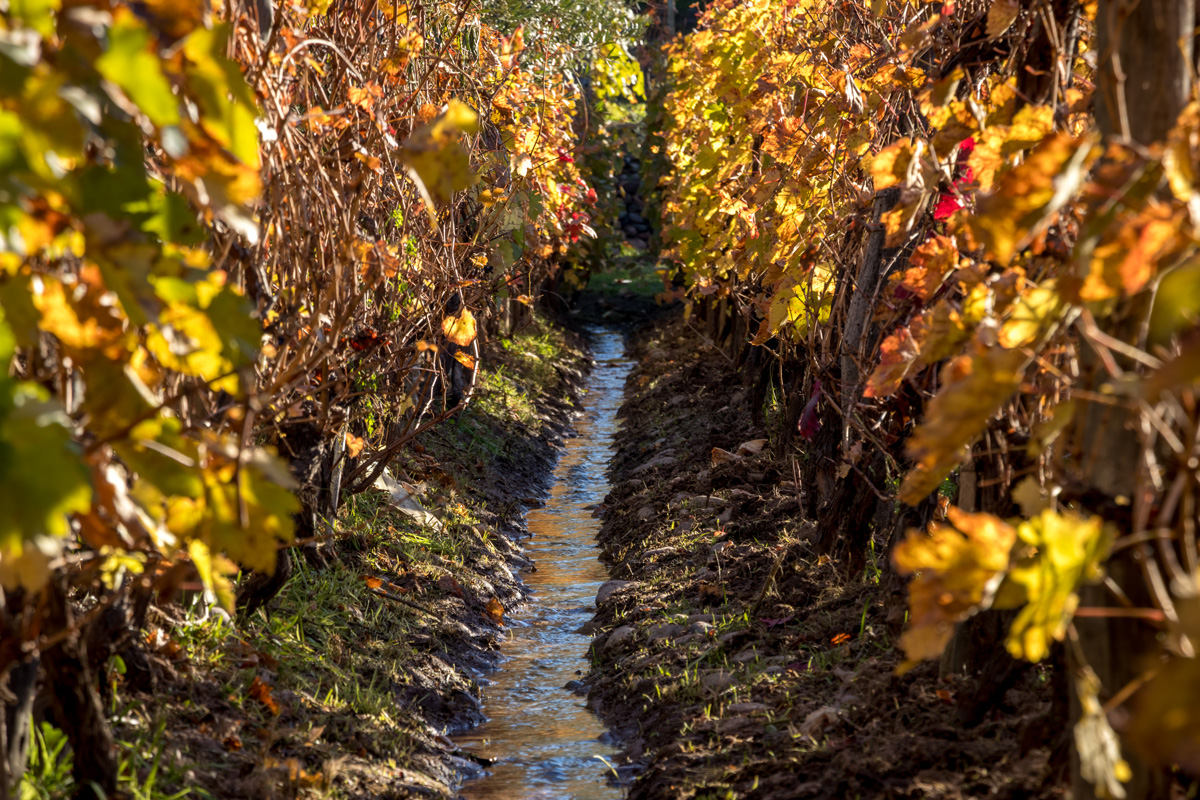
Flood irrigation in Argentina. Getty Images photo
The long and the short of it is that water available for regular irrigation is in short supply and everyone needs to think about how we can limit its use, preserving what we have. Grapes, fortunately, are not a thirsty crop compared with many other fruits and vegetables, and when focusing on quality and using drip irrigation, at least grape growing isn’t a resource hog.
That said, many areas of the world have had their wells, ponds, dams and lakes dry up, meaning there is nothing to irrigate with. Drought tolerance among different grape varieties and root stocks is increasingly discussed as growers plan their future.
The main types of irrigation in viticulture went from overhead sprinklers that water large areas to mostly drip irrigation, which is expensive to install, but concentrates much less water into the soil directly below the vines. (Some areas of the world still use flood irrigation, which literally floods a vineyard and soaks the soil for the plants to extract over the coming weeks or months.)
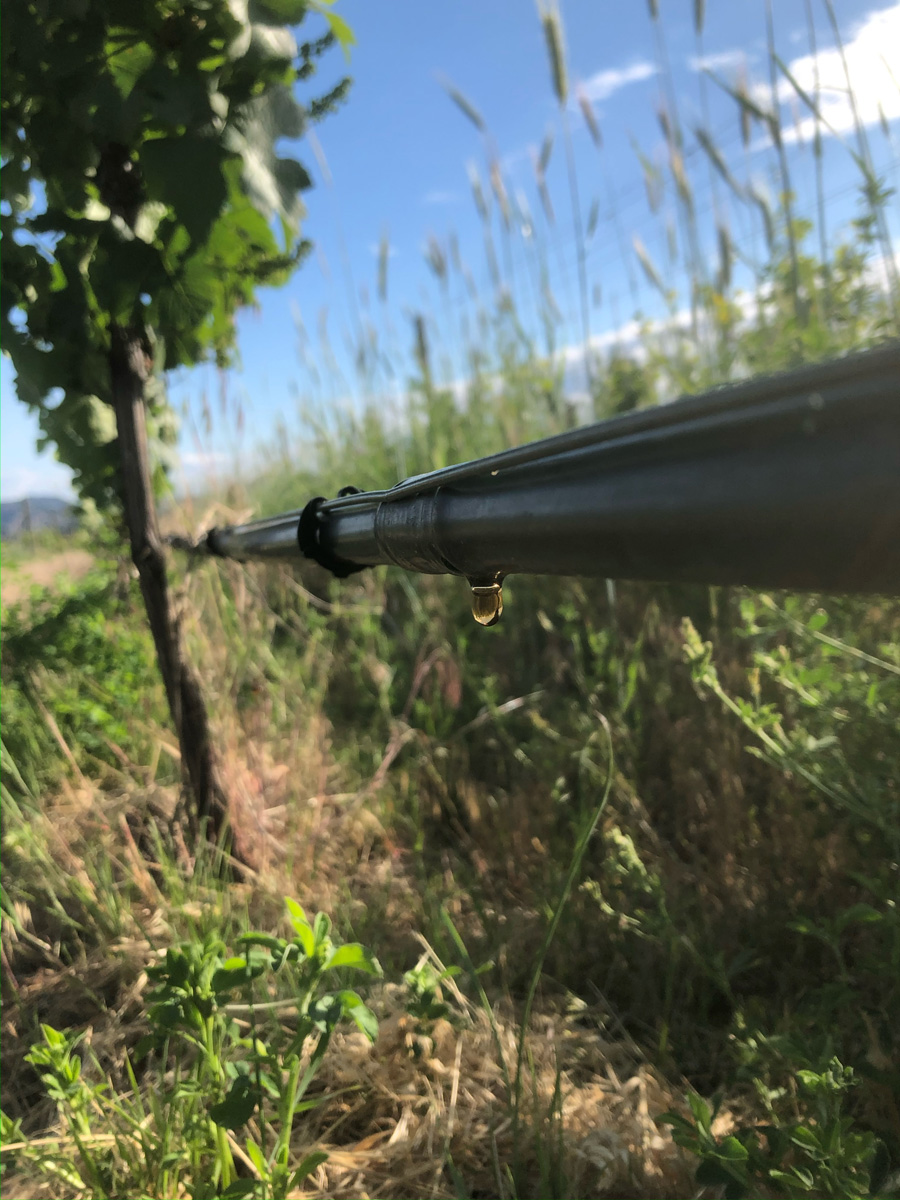
Drip irrigation at Tantalus Vineyards in Kelowna. Photo courtesy of Tantalus Vineyards
It is not uncommon to see both drip and overhead irrigation in some vineyards as water sprinkled into the canopy can protect leaves against spring and fall frost, something that is happening with increased regularity in this changing climate.
In British Columbia, the issue of water has become a hot topic.
For years growers had happily pumped the aquifers below their land to water their crops, a right they took for granted. Then, in 2016, the government made plans to regulate and license the use of groundwater for commercial operations. Few applied at the time, so groundwater users were given a three-year transition period to apply for a licence. Even with a further extension to March 1 this year, about 60 per cent missed the deadline.
Some growers are not happy with having to pay and have found the application process cumbersome and confusing. Missing the deadline might mean their grandfathered rights expire and could result in a $1,000 registration fee as a new user.
While the government process could have been run a lot smoother, it is hard to complain as B.C. was the last jurisdiction in North America to regulate groundwater use. Nearly six years should be enough notice to get organized and apply.
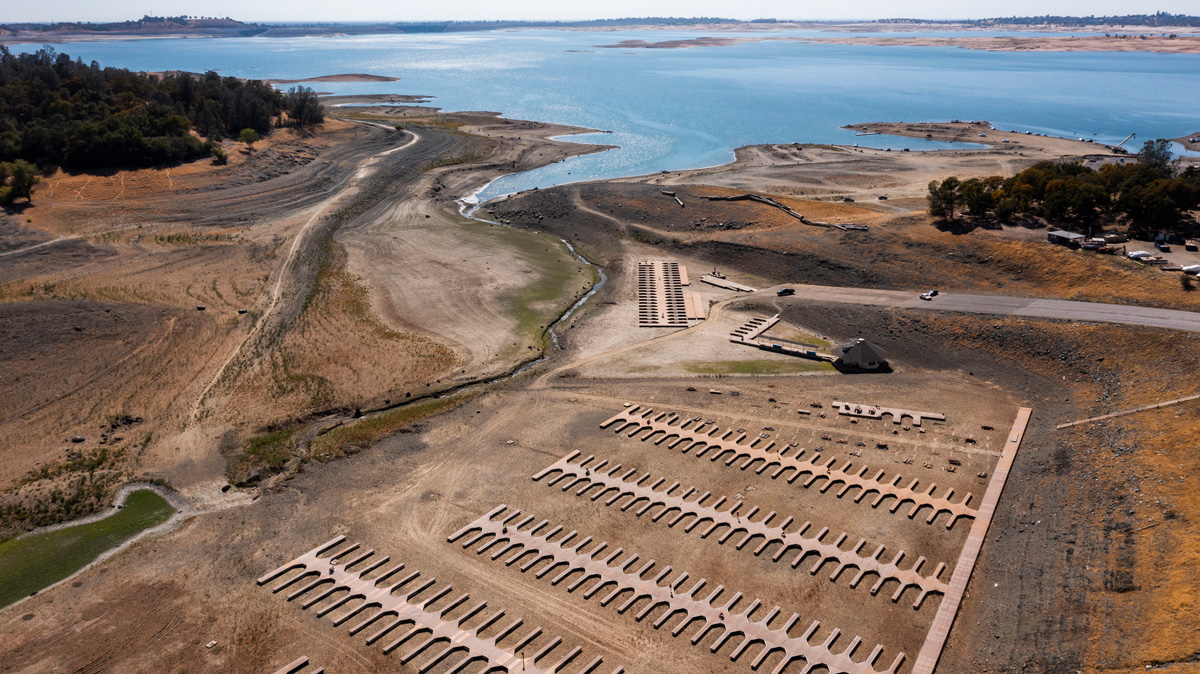
Sign of the future? A dried-up lake in California leaves boat docks beached. Getty Images photo
Seeing images of lakes in California with abandoned boat docks hundreds of metres from the water and others that have been reduced from huge bodies of water to a trickling stream makes you realize that water is not an infinite resource. It makes sense to protect it and pay for its use, hopefully discouraging waste. B.C. wineries are taking notice and many are switching to organic and sustainable farming, all methods whose philosophy includes managing water use.
While grapes can be seen as sustainable compared to most crops, irrigation cannot be taken for granted. Growers need to look at how and where less water can be used, preserving our precious water resources.
And while irrigation may not be a sexy topic, a world without wine certainly is an off-putting proposition we don’t want to face.
CedarCreek Organic Estate Riesling 2020
(Okanagan Valley, B.C., $21) Pear, lime zest, honey, off-dry.

Tantalus Pinot Noir 2019
(Okanagan Valley, B.C., $40) Cherries, potpourri, graphite, silkiness.

Summerhill Biodynamic Estate Pinot Noir 2020
(Okanagan Valley, B.C., $40) Plums, blueberry, violet, earth, grip.

Rhys Pender is a Master of Wine who combines his time writing, judging, teaching, consulting and dirtying his boots at his four-acre vineyard and winery, Little Farm Winery, in the Similkameen Valley.

Rhys Pender is a Master of Wine who combines his time writing, judging, teaching, consulting and dirtying his boots at his four-acre vineyard and winery, Little Farm Winery, in the Similkameen Valley.
© 2024 Vitis Magazine